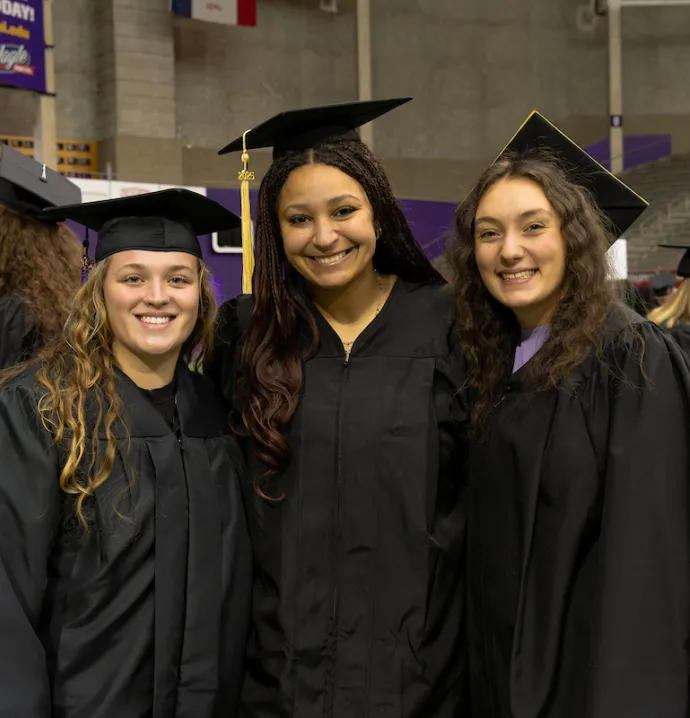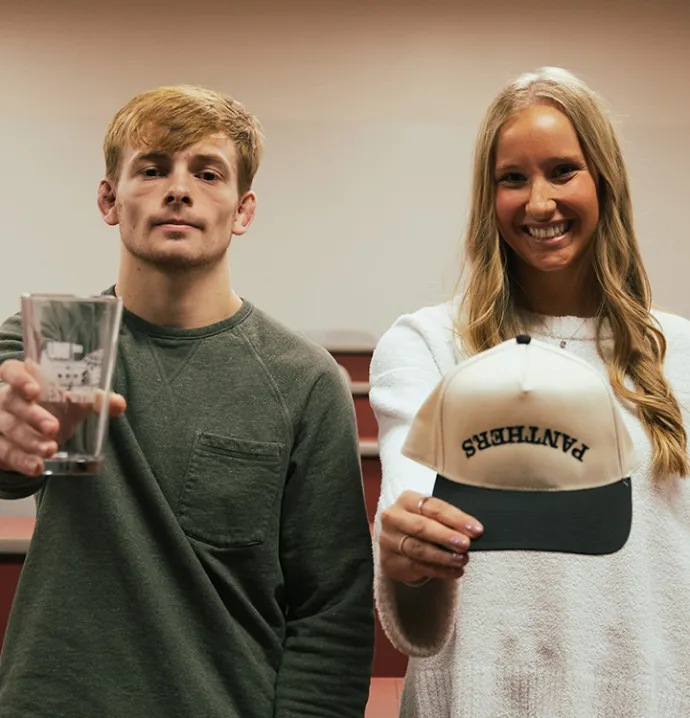Building Communities, Shaping Futures
Building Communities, Shaping Futures
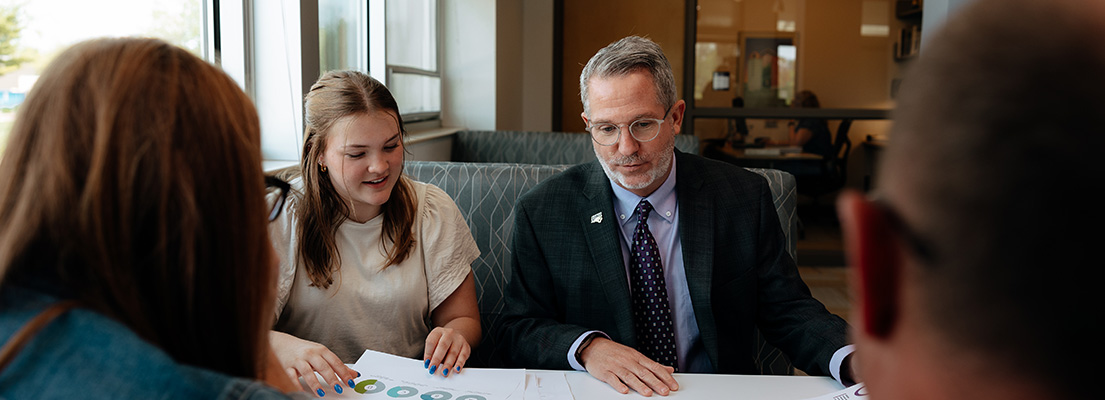
Four decades of Business and Community Services
Nearly forty years ago, a vision for a better Iowa took root through the University of Northern Iowa's Business and Community Services. This vision has since unfolded into a vibrant collection of 12 distinct programs, encompassing consulting services for community economic development, waste reduction, family business, employee ownership, entrepreneurship, market research and much more. All operate with the mission statement of “Building a Better Iowa.”
And build a better Iowa it has. The impact numbers are staggering. In 2023 alone, the organization provided service in all 99 Iowa counties (and beyond), served nearly 260,000 Iowans and 3,953 unique businesses, and reached more than 3,100 students. Business and Community Services is more than a service organization — it’s an intricate part of Iowa’s communities and economy.
A history of making a difference
When Randy Pilkington joined what became Business and Community Services in 1987, all the organization had was a vision and a nudge from the state of Iowa. The governor at the time, Terry Branstad, approached the three Iowa public universities and asked them to take a broader role in supporting economic development in the state. The farm crisis was at its peak and hitting Iowa particularly hard. Land values were at lows and foreclosures at record highs.
“UNI did a great job of educating students and putting them into the workforce, but we also had expertise that could have a deeper contribution across the state,” Pilkington said. “At the time, we felt there wasn’t a lot of guidance for Iowans helping them through the process of determining their futures, so we felt we could help those communities.”
Thus, the Institute for Decision Making, the first Business and Community Services program, was born. The Iowa Waste Reduction Center, which would later fall under Business and Community Services, was also launched in 1987. The Institute for Decision Making was, and still is, a practical group that helped communities develop long-term planning efforts, implement significant projects and serve as a partner.
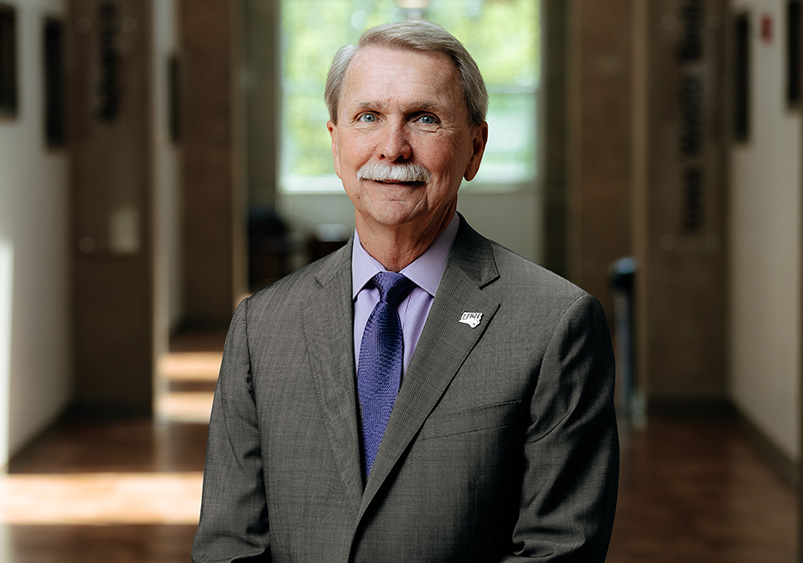
From there, we added services
as we identified gaps across the state of Iowa.
By 2000, there were eight outreach programs, and the Business and Community Services organization was created to house all this work under one banner within the Wilson College of Business and uniquely collaborate with clients as needed.
Since then, the number of programs has grown to 12. Programs include the University of Northern Iowa John Pappajohn Entrepreneurial Center, the Family Business Center, Metal Casting Center, Foundry 4.0 Center, Center for Energy and Environmental Education and Strategic Marketing Services.
“I think we’ve really exceeded expectations with the Institution for Decision Making,” Pilkington said. “When we launched the program, our goal was to get out to the community level and help them shape their vision for the future. As the Institute for Decision Making expanded and began serving all 99 counties across the state, we learned about a lot about other unmet needs.”
Helping small communities and businesses
More than 99% of Iowa’s businesses are small businesses, employing almost 50% of the state’s workforce. And as anyone who has spent time in Iowa knows, hundreds of small and rural communities are spread across the state’s 99 counties.
Many of these small businesses or communities don’t have the budget to hire consulting companies to help with succession planning, environmental goals, business planning or a myriad of other needs. Fortunately, Business and Community Services fills those gaps and makes a bigimpact in Iowa.
“We help across the entire state, but small- and medium-sized companies and communities are really our focus,” Pilkington said.
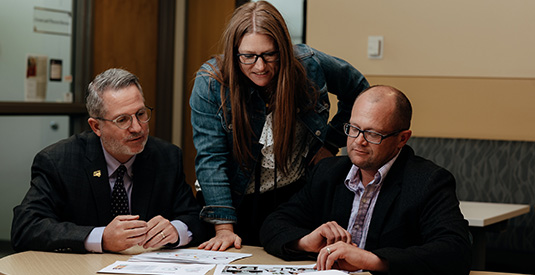
One huge strength of Business and Community Services is its longevity and experience. With almost 40 years of service and employing professionals with industry experience, the organization is a valuable resource for those needing a partner.
That long-term experience is useful, particularly with smaller communities and economic development organizations. The Institute for Decision Making has clients that go back decades, spanning multiple leaders.
One example is Fort Madison, Iowa, a city of about 10,000 people situated on the Mississippi River in the southeast part of the state. The Institute for Decision Making (IDM) has worked with Fort Madison since the late-1980s, providing continuity and a sort of database for long-term visions, decisions and metrics gathered over those years. And that’s just one of the more than 800 economic development and community organizations that the center has worked with since 1987.
“We have a stable staff, and we also have that institutional knowledge for these communities,” said Drew Conrad, the director of the Institute for Decision Making. “I think in those smaller rural communities, there would be a void for technical assistance without us. We have a lot of organizations or communities that have worked with us for 30-plus years, and we’re their key resource. If they have a question or need help, they pick up the phone and call us.”
The Family Business Center, a relatively new program within Business and Community Services, was created to serve enterprises owned by families, making up about 36% of Iowa’s businesses, many of which are small-to-medium sized.
By the end of 2023, the program had helped 163 family businesses with transition planning, family governance and next-generation leadership development. The first annual Family Business Conference — offered exclusively to multi-generational Iowa family businesses — was attended by 135 people.
Our mission is to help companies stay family-owned, and that’s a big thing from an economic development standpoint.
Dan Beenken, director of the Family Business Center went on to say. “When a company gets sold out of state or out of country, the decision-making lens is far different than when it’s someone in the community. Local owners typically invest more into the communities, and hiring practices look different. They are economic engines for these towns and Iowa as a state.”
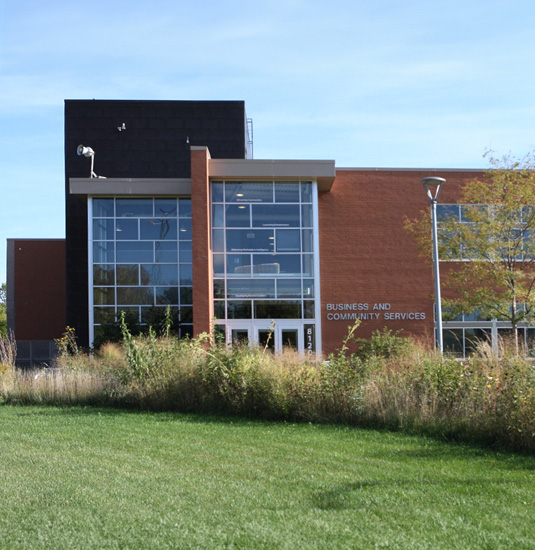
In 2023, the Iowa Waste Reduction Center and Center for Energy & Environmental Education provided 126 small businesses with individualized environmental expertise. The Iowa Waste Reduction Center’s Painter Training program has also certified 5,000 painters over 20 years, providing an employment pipeline for businesses and government.
Expertise from everywhere
Business and Community Services has about 50 employees but draws from a much broader community for support. In 2023, more than 3,000 students – primarily undergraduates – worked in some way with Business and Community Services projects or clients, whether it be an internship, employment, classroom project or community engagement project. UNI also employs faculty with a wide-range of expertise in everything from artificial intelligence to engineering to accounting.
Pilkington said that working with students is particularly important as it gets them involved in projects in the Cedar Valley and around Iowa. Because of those discovered opportunities and connections, students may be more likely to stay in Iowa post-graduation.
“We work with faculty, we work with students, we employ students, we work with the other programs,” Conrad said. “We’ve done a lot of collaborative work over the years. We help faculty if they need data, and we can draw on their expertise as well.”
Those connections and expertise were crucial when Business and Community Services collaborated with the Iowa Economic Development Authority on the statewide COVID business impact surveys. When the COVID-19 pandemic gripped the country and shut down communities, the director of the Iowa Economic Development Authority Debi Durham – an advisory council member for the Institute for Decision Making – called Conrad and wanted to tap into Business and Community Services to survey businesses around the state.
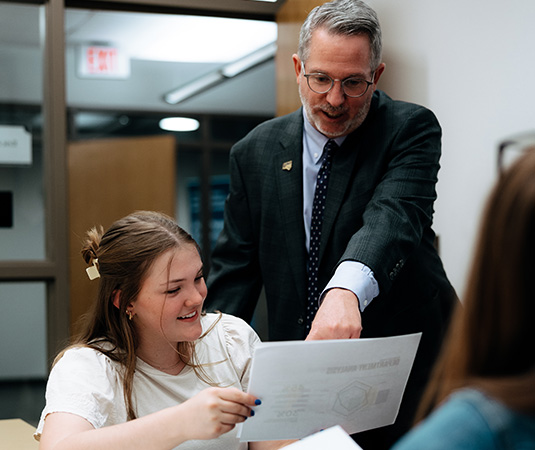
The Institute for Decision Making partnered with Strategic Marketing Services, and, within 36 hours, a survey was sent. Almost 14,000 businesses and nonprofits completed it in just six days. Organizers leveraged contacts through the JPEC, Advance Iowa and the Iowa Waste Reduction Center, as well as the Iowa Business Council, the Iowa Association of Business and Industry and the Iowa Restaurant Association. That was the first of four surveys completed, and it was key in informing legislation.
"Collaboration is part of what makes us strong with multiple different service offerings and many of them touching similar client bases in different ways,” Beenken said.
“There’s a lot of cross-pollination that can happen that way. We often hear needs from clients and can put them in touch with others within our spectrum of programs.”
Uniquely UNI
Frequently, Pilkington fields questions from universities nationwide, wondering how they can set up something like Business and Community Services. The answer is never simple.
“I always tell them to be ready for more than 30 years of effort,” Pilkington said with a laugh. “Because it took us that long to get to where we are today, where we have an experienced staff, good student engagement and impact across the state. We’re the go-to organization, and that’s not very common across the United States.”


